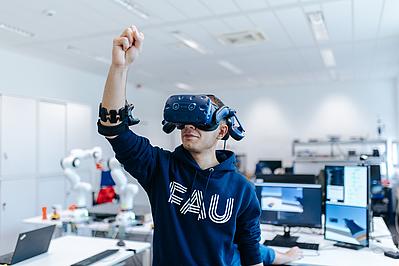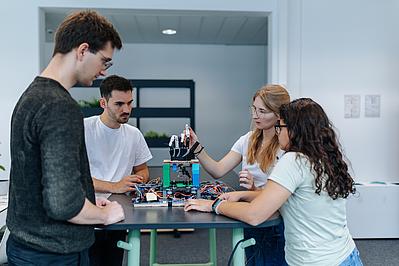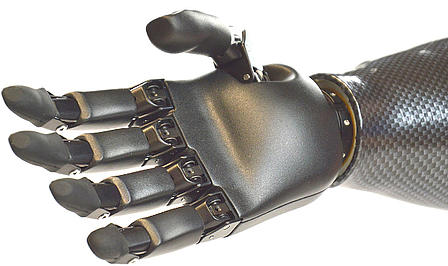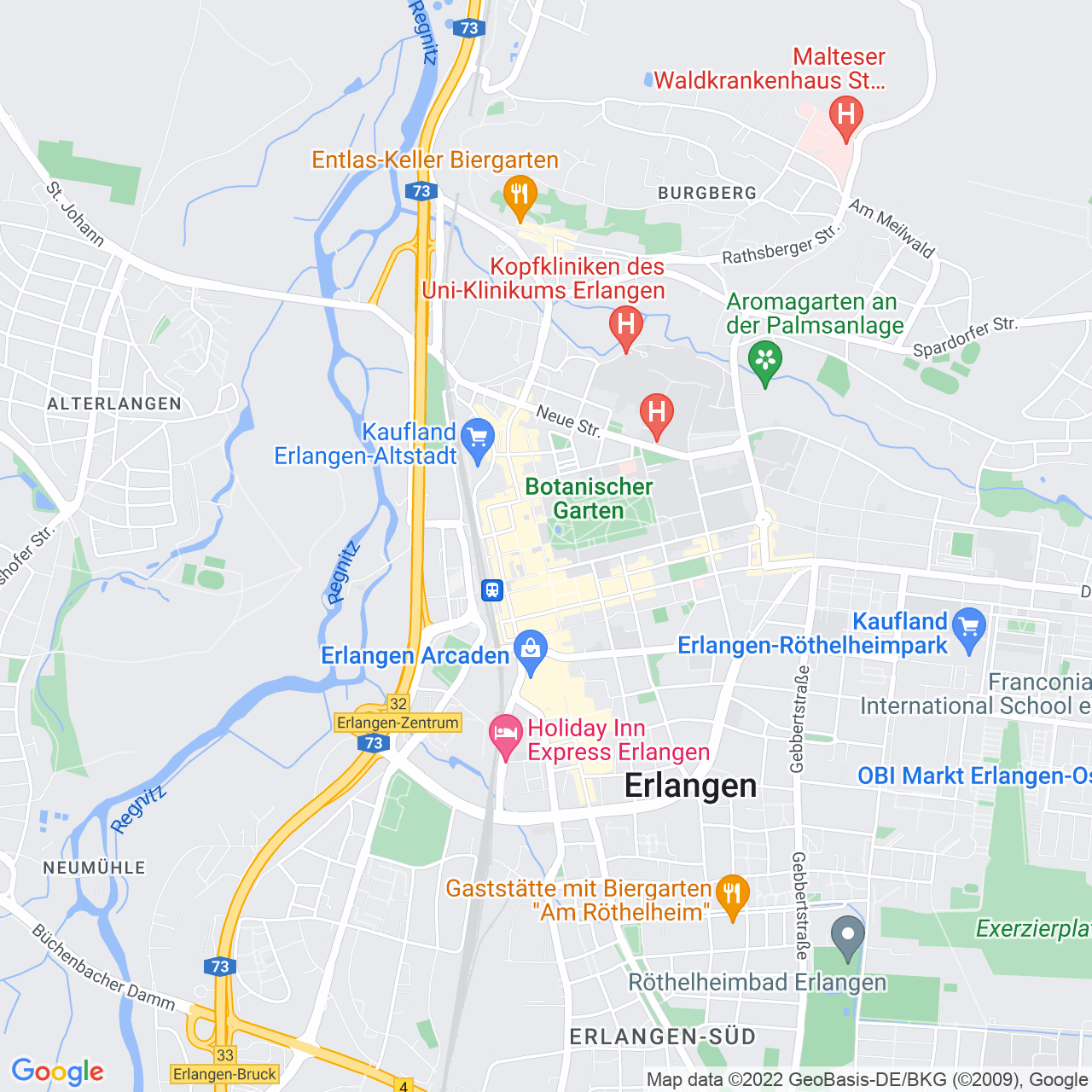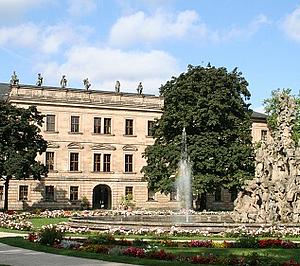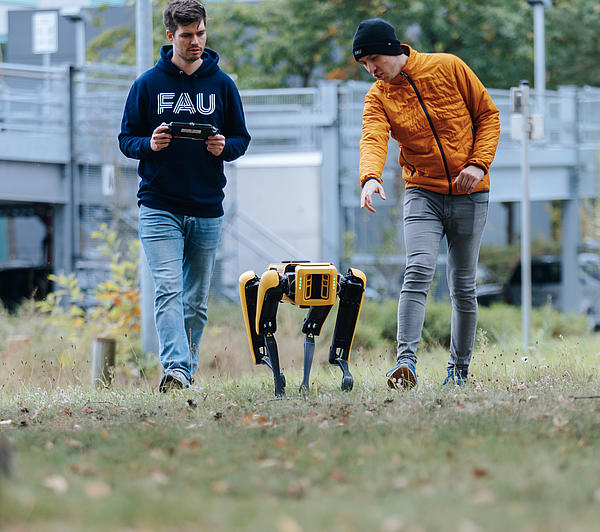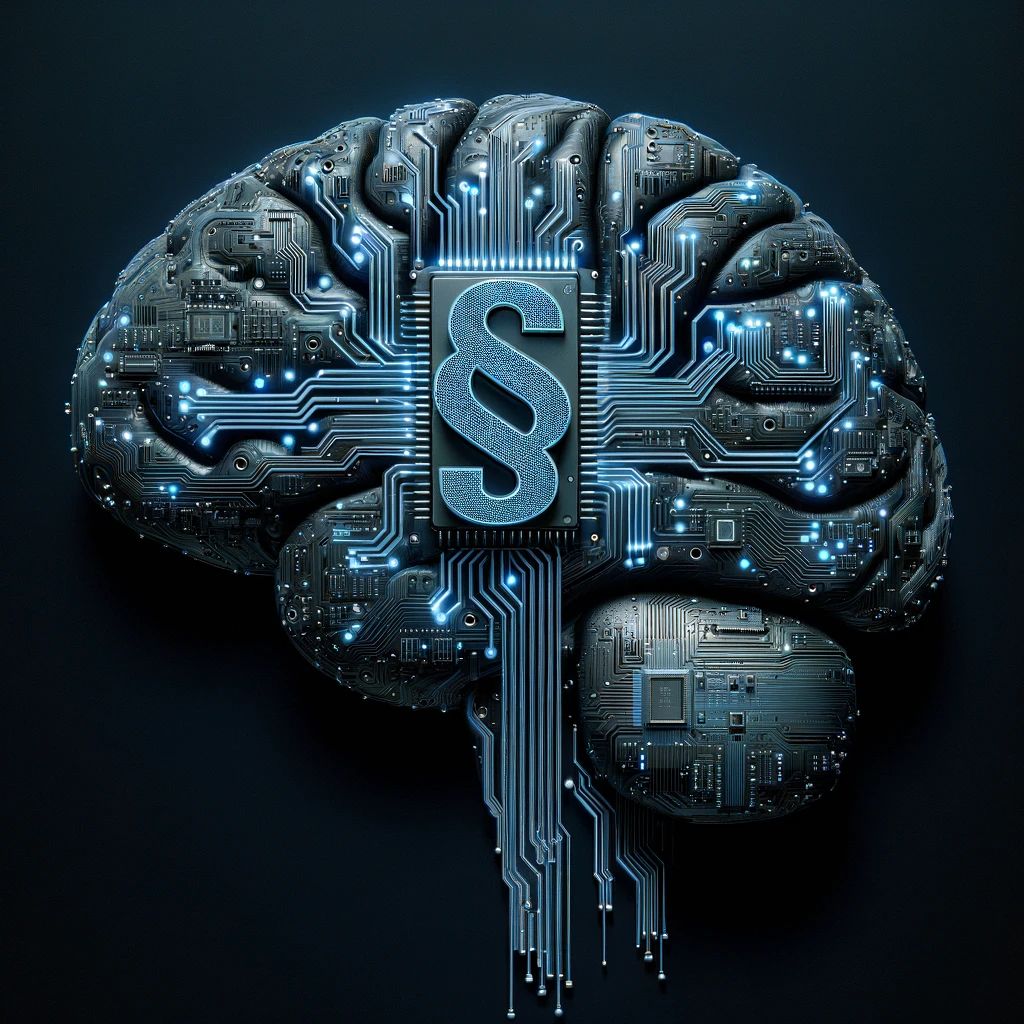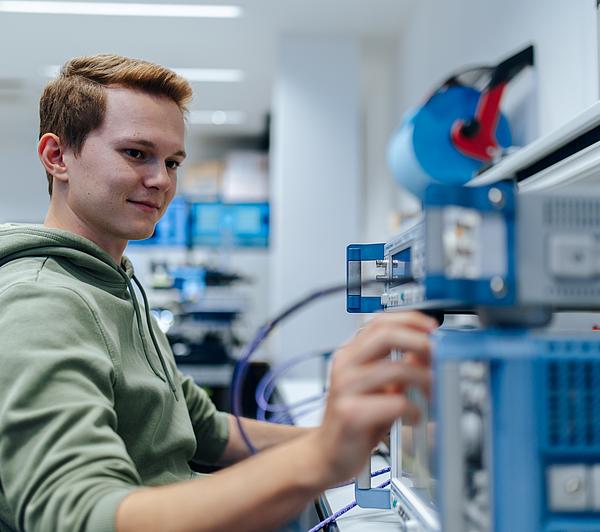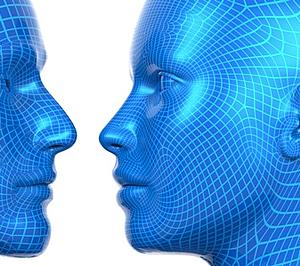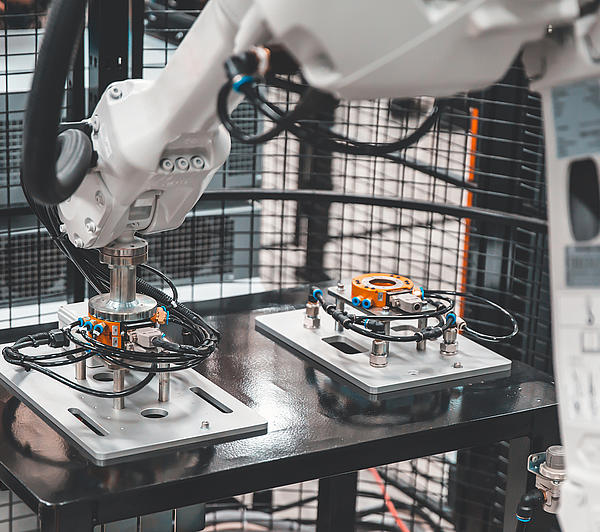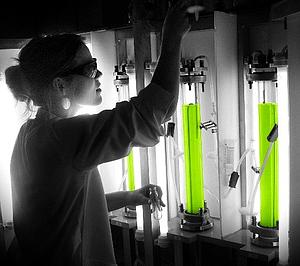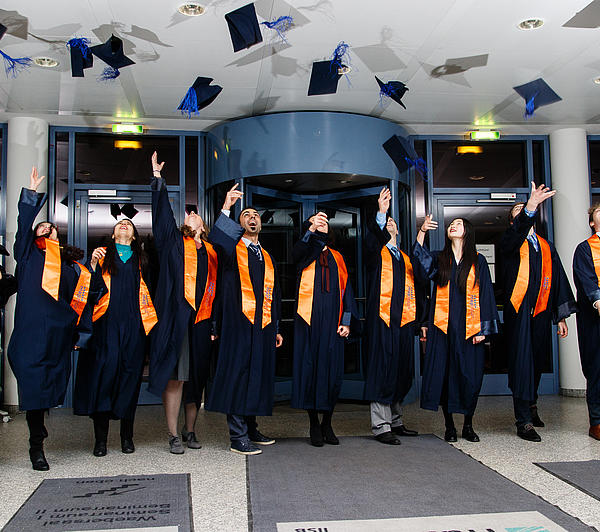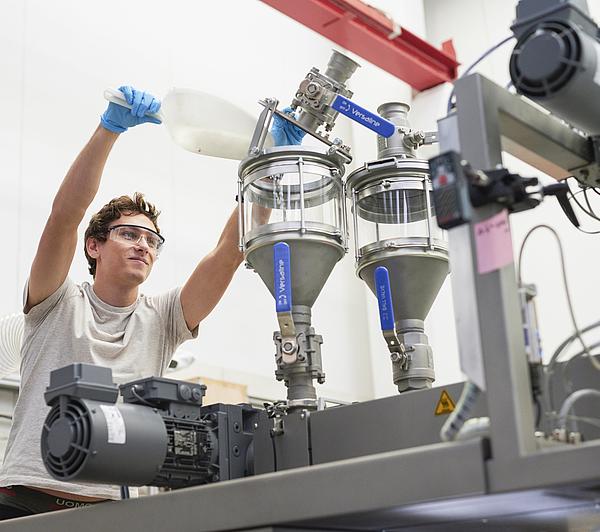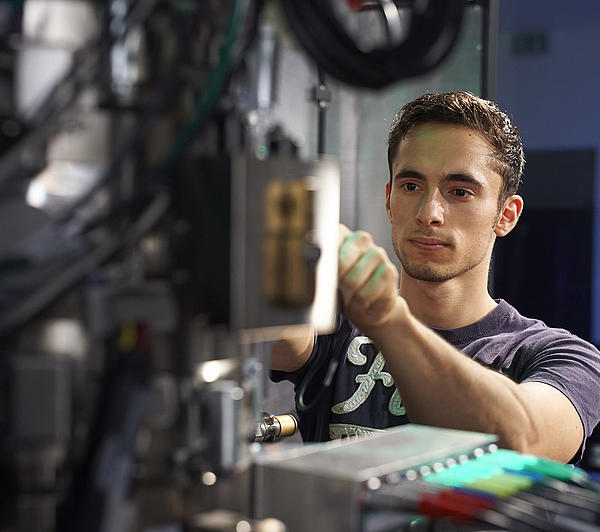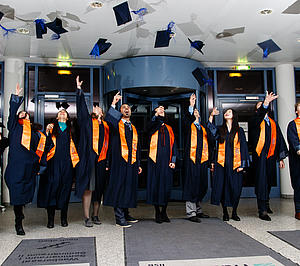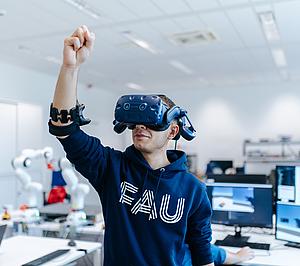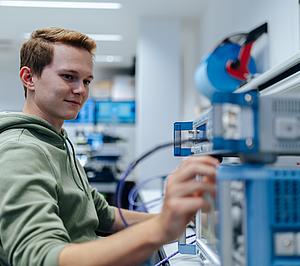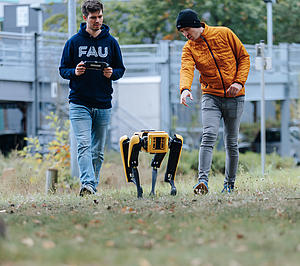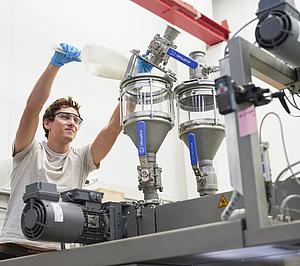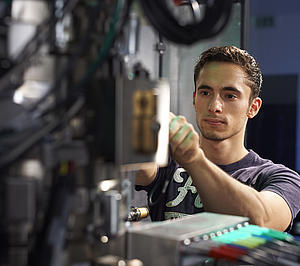The future awaits, and it’s intelligent. Are you ready to lead the way?
Our degree programs are designed to give graduates a solid understanding of the well-founded academic methodologies of AI, the diversity of application domains and intersections with other related scientific fields.
- Unravel the mysteries of machine learning, large language models, and deep learning. Gain your expertise in the areas of symbolic AI, subsymbolic AI as well as AI systems!
- Dive into robotics, bioinformatics, image analysis, sensor data, high-performance computing, and computer architecture!
- Work hands-on on cutting-edge projects in our labs and research groups and uncover the limitless possibilities of AI applications!
In contrast to Data Science oriented programs, AI focuses on the constructive modelling and implementation of algorithms, data structures, neural networks and their respective applications.
Discover the fascinating field of artificial intelligence and gain an in-depth understanding of intelligent models, systems, and algorithms!
In this interdisciplinary English-language Bachelor's degree program, students acquire fundamental knowledge in the fields of computer science, mathematics, and the ethical-philosophical contextualization of AI. These fundamentals are supplemented by various research- and application-oriented electives.
Overview
Degree: Bachelor of Science (180 ECTS)
Duration: 6 semesters (full time) | 12 semesters (part time)
Language: English
Admission: no NC, but Qualification Assessment Process (incl. online test)
Start: winter semesters
Location: Erlangen
Structure
Basic knowledge and methods are taught in the compulsory modules of the three basic areas:
- Computer science
- Mathematics
- Artificial intelligence
There are no predefined fields of study. Instead, students can follow their interests and choose individual specializations in various elective modules on research- and application-relevant aspects of AI. Modules in the various compulsory elective areas enable students to supplement and deepen their knowledge:
- Application Domain Fundamentals: introductory modules from application domains to understand the areas in which AI methods are used
- AI Electives: modules on specific AI topics to deepen or broaden knowledge acquired in the compulsory modules
- AI Seminar: seminar module on a cutting-edge AI topic to further familiarize with AI research
- AI Project: project module to put the knowledge gained from the theoretical modules into practice
- Free Choice from the courses offered at FAU to acquire further key qualifications
As part of the Bachelor’s thesis, students test their scientific working methods by independently working on and presenting a specific AI topic.
Further Information
For detailed information on the degree program, applications and the Qualification Assessment Process please refer to our website.
Make machines think!
The English-language Master's degree program is based on a solid foundation and education in the field of Computer Science. The program consists of three main pillars: symbolic AI (such as Expert Systems and Logical Calculi), subsymbolic AI (such as Deep and Machine Learning) and AI systems and applications.
Overview
Degree: Master of Science (120 ECTS)
Duration: 4 semesters (full time) | 8 semesters (part time)
Language: English
Admission: no NC, but Qualification Assessment Process (incl. online test)
Start: winter and summer semesters
Location: Erlangen
Structure
The degree program offers a broad variety of topics and specializations and a wide range of applications and research groups in the Department of Computer Science provides broad opportunities for “hands-on” project work and practical sessions.
Electives [50 ECTS]: The elective courses in this Master’s program are geared towards introducing students to academic research around artificial intelligence and its methodologies as well as offering every student the opportunity to shape their profile specifically towards their talents and interests. The electives are centered around the three central pillars of the AI Master’s program:
- Symbolic AI
- Subsymbolic AI
- AI Systems and Applications
Students will have to take a total of 50 ECTS credits worth of elective courses, with no less than 10 of them in each of the central pillars. Which courses are available for each of these tracks is announced on a semester-by-semester basis in the module catalog.
Projects [10 + 10 ECTS]: The two required 10 ECTS projects are intended to hone and put to the test students’ acquired technical knowledge, research ability and self-organization skills. They will typically be completed in the context of a work group related to artificial intelligence and will require the students to independently tackle a more complex problem or question. Both projects have to be associated with one of the central pillars discussed above and cannot both be associated with the same pillar. Each project is planned to take approximately 300 hours over six months.
Seminar [5 ECTS]: The seminar will allow students to connect with a topic complex of their choice, conduct research and interact with academic information, and present their findings to a relevant audience. It is intended to account for 5 ECTS credits and can be completed in a group.
Minor [15 ECTS]: For this module, students will chose 15 ECTS credits worth of courses that have a practical or topical connection to artificial intelligence (but are not already included in the electives discussed above). The goal is to work on connecting the gained knowledge to a broad array of subjects that interface with artificial intelligence and may form the basis for applications in future employment.
Master’s Thesis [30 ECTS]: The Master’s thesis can be registered at the Examinations Office as soon as the student has successfully collected 60 ECTS credits. It has an extent of around 900 hours and has to be completed within six months after registration. The topic of the thesis must be related to subjects studied by the student during the program. A special thesis supervisor is usually assigned to each student. The thesis may involve regular meetings with the thesis supervisor and also participation in a larger research group. It needs to be written in English. An oral presentation of the results lasting about 30 minutes and a consecutive discussion are obligatory.
Further Information
For detailed information on the degree program, applications and the Qualification Assessment Process please refer to our website.
Graduates of the Bachelor’s degree program in Artificial Intelligence are familiar with the mathematical and computer science fundamentals of artificial intelligence and have a research-oriented specialization in selected application areas. This gives them the perfect qualifications for a career in a dynamic and fast-growing industry or to continue studying and complete the Master's degree.
In the Master's degree program in Artificial Intelligence, students can deepen and expand on topics that they have learned about during their qualification studies, depending on their individual goals and inclinations. Students are introduced to current topics of academic or industrial research.
Our degrees qualify students to work in the software industry and data-driven technology companies, as well as in other sectors in which artificial intelligence is used.

